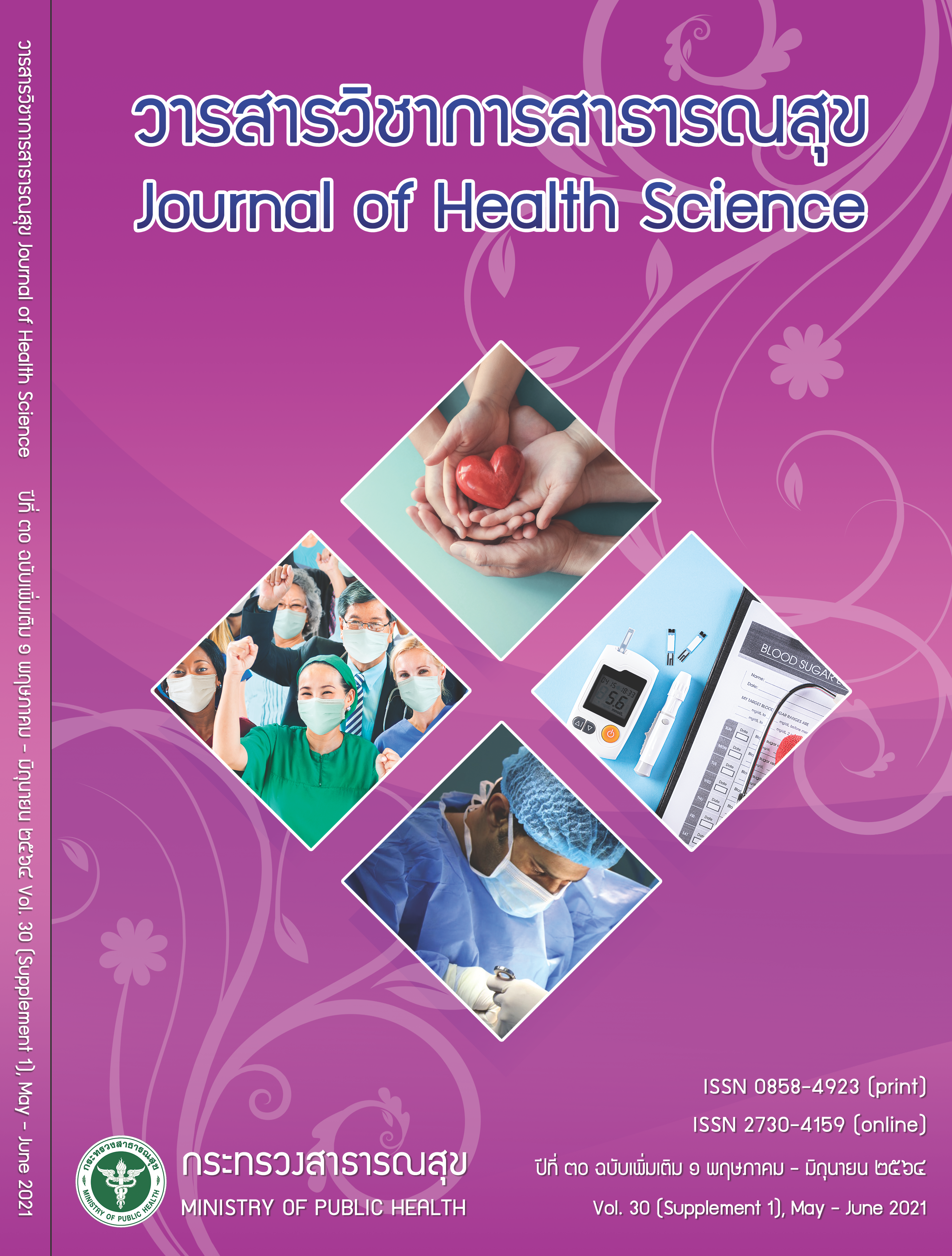Obstacle Problems and Needs for Developing Health Coaching Competency among Public Health Officers Providing Services for Behovioral Change of Obese Clients
Keywords:
competency, health coaching, behavior adjustment, obesity clientsAbstract
The objectives of this study were to study the obstacles problems of health coaching and to assess the needs of public health officers for competency development focusong on behavioral modification of obese patients. The samples were 7 health personnel working in non-communicable disease section in Sai Thong Watthana District, Kamphaeng Phet province; and the study was conducted based on their working conditions using group discussion and study of medical records. The research tools included questionnaire interview, group discussion and reviewing patient record forms at 4 sub-district health promoting hospitals and Sai Thong Watthana community hospital in order to identify obstacle problems and assess health coaching competencies of 58 public health personnel. Data were analyzed by using content analysis, frequency, percentage, mean and standard deviation. It was found that most health officers in the study were between 40-49 years old (39.09%), 86.36% had a bachelor degree. The problems in providing health coaching to obese clients in general were at a medium level.(mean 3.55, SD 1.18); and the problem on communication to promote health care awareness had the highest mean (mean 3.72, SD 1.31), followed by the method of health coaching (mean 3.72, SD 1.31). Regarding the needs for capacity development in general, it was found to be at a high level (mean 4.33, SD 0.06). The need for developing health counseling skills was highest (mean 4.58, SD 0.09), followed by the development of the health network partners (mean 4.37, SD 0.05). The results of the analysis and the synthesis of the concept of the development of health coaching competency for public health officers identified 8 important competencies: (1) knowledge competency regarding the obesity and health coaching, (2) competency skill regarding human rights and ethics, (3) competency on personal attributes, (4) competency skills on health coaching, (5) management competencies, (6) competency on self-awareness, (7) competency on self-motivation, and (8) competency on the development of health network partners.
Downloads
Downloads
Published
How to Cite
Issue
Section
License

This work is licensed under a Creative Commons Attribution-NonCommercial-NoDerivatives 4.0 International License.







